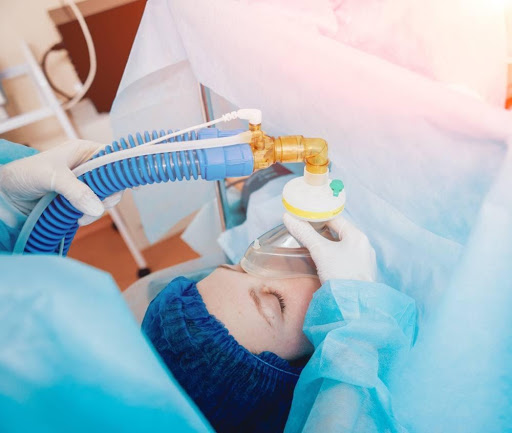

8 FACTS YOU NEED TO KNOW ABOUT ANAESTHESIA

Today, the medical world is seeing unparalleled advancement in surgical and operational fronts. While many of these procedures are life-saving, none of this would have been possible if not for anesthesia. It is one of the greatest discoveries in medicine prior to which surgeries were just impossible or used to happen at the cost of unbearable pain and sometimes even death of the patient. It effectively numbs the sensations of the patient or causes unconsciousness which enables painless and effective surgery.
Now, numbing parts of your body must be quite scary as we definitely do not want any side effects. You might also worry about the potency and effectiveness of anesthetics, lest it permits any intraoperative awareness, that is sensation during treatment. Who will administer the drug and can anyone take it? What is the procedure? Don't be overwhelmed, because this blog is sure to give you these answers and help you make the best decision for your body.
1. What is anesthesia?
The Australia and New Zealand College of Anaesthetics defines anesthesia as ' the practice of administering medications either by injection or by inhalation, that block the feeling of pain and other sensations, or that produce a deep state of unconsciousness that eliminates all sensations, which allows medical and surgical procedures to be undertaken without causing undue distress or discomfort'. In short, anesthesia is a state where a particular body part or your entire body is numb to sensations by administering medication. Various types of anesthetics are given for different purposes and durations.
2. Is anesthesia safe?
The history of anesthesia is extremely rich with constant efforts by anesthesiologists to attend to the patient's needs. Today, the anesthetics used are highly evolved with much less toxicity and are more potent. According to the World Federation of Societies of Anesthesiologists- "anesthesia is now very safe, with a mortality of less than 1 in 250,000 directly related to anesthesia in most high-income countries". There are some risks associated with anesthetics, but they are quite safe if administered correctly.
3. How do Anesthetics work?
Anesthetics work by stopping the brain signals that keep you awake from reaching the brain. Post this, the procedures administered will not cause you any feeling. Once the anesthetic wears off, consciousness will return and you will be able to feel sensations again.
4. What are the types of anesthesia?
There are many types of anesthesia:
a. Local anesthesia: This is used to numb a particular part of the body, usually for minor procedures.
b. General anesthesia: In this state, you will be totally unconscious and unaware. This is used for longer and more serious treatment.
c. Regional anesthesia: This is a more potent version of local anesthesia where the procedure requires deeper numbness in a particular part of the body.
d. Epidural anesthesia: This is a state where the lower part of the body is numbed usually for childbirth.
e. Spinal Anaesthetic: This is another version of regional anesthesia which gives total numbness for around three hours to the lower part of the body. The anesthetic is injected on the lower back.
f. Sedation: Sedation is a medication that helps you relax and sleepy for minor inconvenient procedures.
5. How are the Anaesthetics Used?
Anesthetics are often used with one another to enable comfortable and painless procedures. Before the surgery, a pre-surgical evaluation is conducted to determine the most effective type of anesthesia and the combination of drugs required for the same.
6. Can anyone undergo anesthesia?
While anesthetics are generally extremely safe, like every drug they come with some potential side effects like nausea and confusion. Care needs to be taken if the patient is old as anesthetics might cause postoperative confusion. In general, some conditions put you at riskfor potential side effects of anesthetics: high blood pressure, obstructive sleep apnea, seizures, existing heart or lung diseases, drug allergies, diabetes, and obesity. Smoking and alcoholism are lifestyle habits that might interfere with the functioning of the drug. In the case of the above scenarios, it is very important to get a proper consultation before undergoing the procedure.
7. Can anyone administer Anaesthetics?
As you've realized, anesthesia is a highly nuanced and important state which definitely requires expertise for execution. Anesthetists are specialized doctors who administer the said medication and are responsible for your well-being through the procedure. Your consultation with the anesthetist will determine the type of anesthesia and consequently anesthetic, as well as a careful explanation of the procedure and discussion of the risks. They will carefully monitor you throughout the procedure and also provide you care after the treatment. It is important that you clarify all your doubts with the anesthetist.
So, is Anaesthetics a Good Decision?
Anesthesia is one of the most important discoveries in medicine and surely is highly recommended for comfortable treatment. A variety of anesthetics are available and a suitable combination can be used to meet your needs effectively. The most important part of this procedure is to have a clear discussion with your anesthetist as well as doctor or surgeon to ensure that there is no compromise in your treatment. So make an informed decision after research and consultation.
Related blog: ANAESTHESIOLOGY & THE TEG MACHINE














